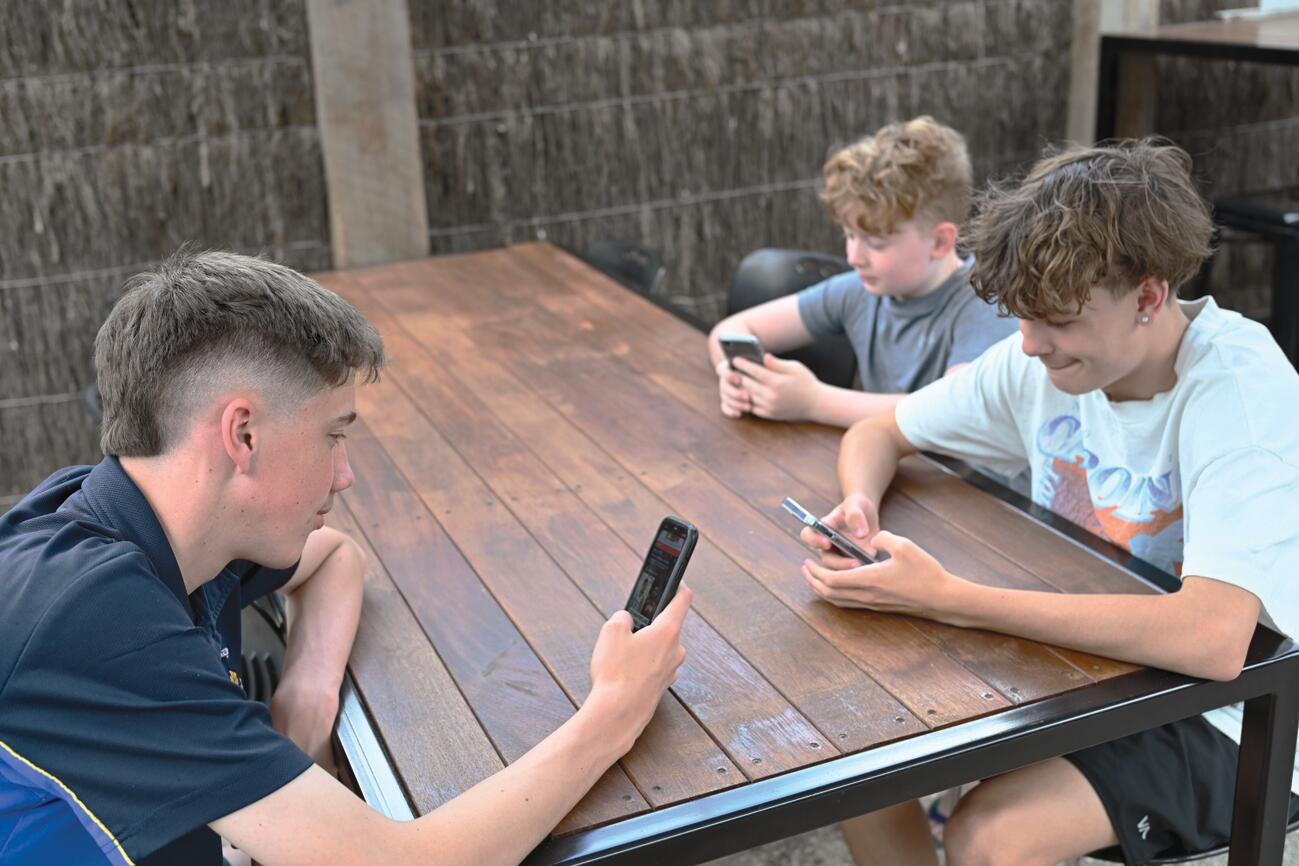General News
19 November, 2024
Social ban gets thumbs down from youngsters
By RUBY HYLAND TO BAN or not to ban? That is the question after Prime Minster Anthony Albanese announced plans to ban all social media for people under 16. While some are enthused about the new law others are left puzzled, wondering how this could...

By RUBY HYLAND
TO BAN or not to ban? That is the question after Prime Minster Anthony Albanese announced plans to ban all social media for people under 16.
While some are enthused about the new law others are left puzzled, wondering how this could be implemented and is an outright ban the right choice?
Two teenagers from Bridgewater have shared their opinions about the changes.
Rusty Hobbs, 15, says that social media shouldn’t be banned, it can be good thing for a lot of people, it’s a way for people to relax and unwind after a long day.
While he acknowledges the presence of online bullying through social media, he says the platforms all have a block feature as well as options to restrict or mute the content.
“People use it as a form of selfcare, a way to take a break from their stresses and just relax for a bit” Rusty said.
While he wouldn’t be affected by the ban, Tate Woodhatch, 16, has friends younger than him that will be, causing a divide between them.
“Some kids, especially in rural areas, can end up feeling isolated without social media, it’s not as easy to meet up with friends if they don’t live down the street.” Tate said.
Tate believes that increased safety protocols would benefit young people on social media.
After signing up to social media platforms such as snapchat at 13, his mother monitored his accounts and who he was in communication with.
Tate said this helped him feel he could go to his parents if he was exposed to things he shouldn’t have been and be able to report unwanted contact.
An outright ban could lead to children lying about their ages and hiding their social media from their guardians, which lowers the likelihood of minors alerting an adult to suspicious or unwanted contact, he said.
Social media platforms have been working over the past few years to increase their safety features for teens and allowing parents to keep an eye on their social media usage while allowing them to have their own accounts.
“Education is the key. We teach our kids about drinking, drugs and bullying, we need to be teaching them about social media safety as well,” said local school teacher and parent Jayne Lawson.
Jayne teaches primary school children and many of her students have their own phone and social media accounts. She has witnessed the good and the bad of social media in a school setting.
“As a teacher I see a range of kids, some who have no access to social media, some who have limited access as well as others who have full access to online content” Jayne said.
And Jayne has seen children who have been overexposed to social media and as a result find socialising in person difficult.
She is concerned that primary school children are not developmentally ready to cope with seeing age-inappropriate content, supporting her belief that primary school is too young for social media, especially when it isn’t being monitored by a parent.
The State Government has provided funding to primary schools to employ a mental health and wellbeing leader to assist with the overall wellbeing of the school. Jayne has had many discussions with colleagues about the contributing factors to the increase in anxiety for primary school students, overwhelmingly one of the most noted contribution is the presence of social media.
While on the other side, students who do not have social media accounts are often excluded and isolated socially and, in some cases, bullied for not being online. While she believes social media usage should definitely be restricted for primary school students, she also states that 16 is too old for a ban.
“Unfortunately banning social media is a catch-22, there’s good and bad outcomes either way, but that is how kids communicate now so the solution needs to be realistic” she said.
Jayne says that as a parent she is stricter with her children’s access to social media due to what she has witnessed as a teacher.
“They don’t have their own phones even though the majority of their friends do.”
Her girls are able to chat with their friends using her phone with Facebook messenger for kids, a program that allows parents to see and control who is communicating with their children and block unknown people.
Jayne believes the law will incite pushback from parents who feel they aren’t getting a say in how they raise their children. She also questions what support the government will provide to parents to assist with this change.
Jayne believes the biggest factor in protecting young people online is education, both in schools and at home, saying social media is a difficult subject to manage but an overall ban doesn’t seem to be the best choice, restrictions would be a better way to go.